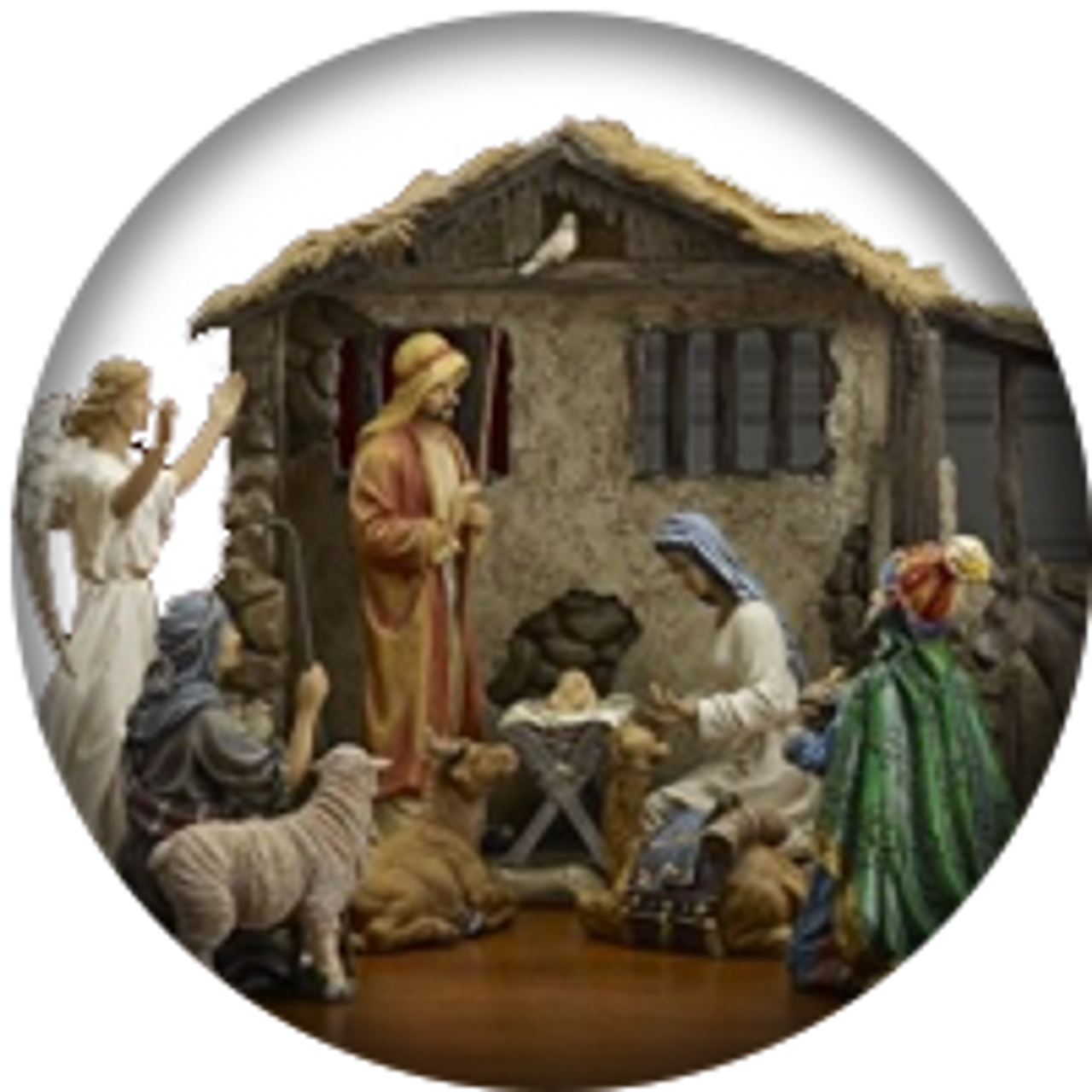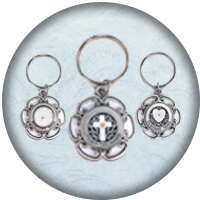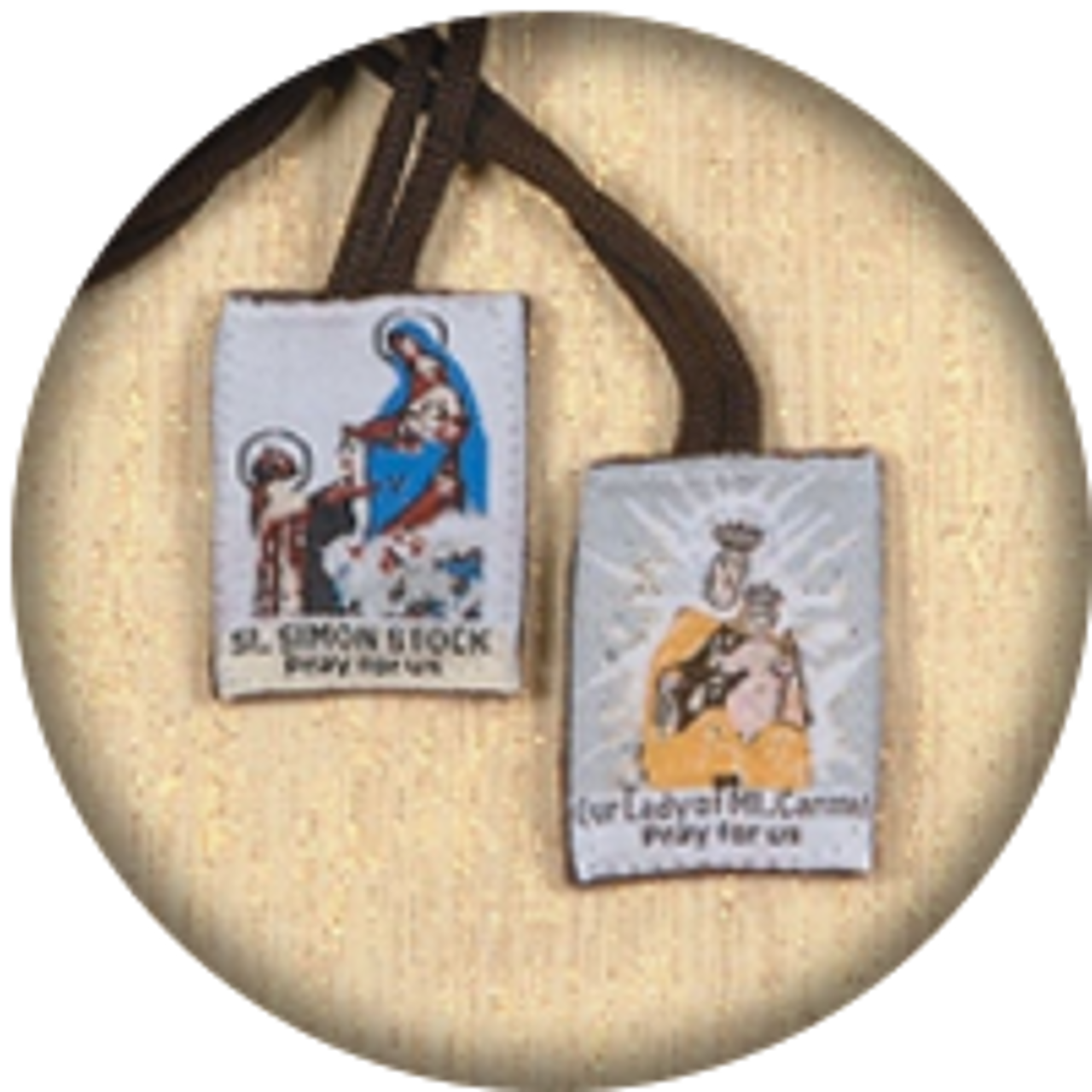WHAT EXACTLY IS A PHARISEE? ST. PAUL’S CONVERSION, PART III
Kathy Boh on 17th Jan 2020
WHAT EXACTLY IS A PHARISEE?
ST. PAUL’S CONVERSION, PART III
We just published CONVERTING FROM PHARISEE TO FOLLOWER—the story of St. Paul’s conversion. We followed up with PART II of the story, telling some of Jesus’ words describing His kingdom and what blocks entry into His kingdom as His follower.
Now, in PART III follow-up to St. Paul’s conversion, we examine what a Pharisee really is, according to Jesus Himself.
RAISE YOUR HAND IF…
Picture this: You are at a church liturgy or gathering. The pastor is giving an inspiring sermon—it’s unusual because it is interactive. He asks a few easy questions of the congregation, and then he asks (in a friendly voice with a big smile on his face) “…And how many Pharisees do we have here today? Raise your hands…” The congregation slowly starts to go more quiet and no hands are raised. Somehow, whatever the people vaguely remember (from Bible readings or church scriptures about Pharisees) fails to make them eager to shoot their hands up into the air.
The point is vividly made: “Pharisee” is not a label most of us want to identify with. Previously on this blog, in our KINGDOM OF GOD series, we mentioned some scriptures and some characteristics of this now questionable but then highly esteemed group from the Gospels. There must be good reason why Jesus continued in verse after verse to warn against these religious leaders, and why we shy away from identifying with them. One reason was that they were neither good examples of the kingdom, nor helpful to (or for) those who desired to come to the truth and love, salvation and healing, deliverance and blessings that Jesus Christ came and died to give.
St. Paul turned 180 degrees against his exquisite Pharisaical training and practice to follow Jesus Christ. Here we look deeper into how all this relates to the truth and life that Jesus came to give. It sets us up to understand St. Paul’s “about face.” (See more details concerning his story in Part I of this series posted this week.)
In this third part, we will start with a Miriam-Webster’s dictionary definition of a Pharisee. That definition says: “a member of a Jewish sect… noted for strict observance of rites and ceremonies of the written law and for insistence on the validity of their own oral traditions concerning the law.”
Throughout this blog article, we will look at specific descriptions of Pharisees—almost entirely based on what Jesus, Himself, said. That will include: behaviors, desires, focuses, accomplishments, characteristics, failures, comparisons, attitudes, values, priorities, preferences and patterns, and their own statements and accusations against Jesus. We begin directly with some scriptures.
SOME SCRIPTURES ON THE PHARISEES
~~They criticized their forefathers saying that they, themselves, would have done things right.
“Woe to you, scribes and Pharisees, hypocrites! For you build the tombs of the prophets and adorn the monuments …and say, ‘If we had been living in the days of our fathers, we would not have been partners with them in shedding the blood of the prophets…. You serpents, you brood of vipers, how will you escape the sentence of hell?" [Mt 23]
~~They desired signs from Jesus as proof of Who He is.
Signs, in themselves, are not an issue with a heart honestly seeking the truth. There are good examples of signs given in the Bible. But the Pharisees were neither seeking to believe the truth, nor open to the truth. They were not open to Jesus, either (Who IS the Truth), so no amount of signs would have been enough.
“Then some of the scribes and Pharisees said to Him, ‘Teacher, we want to see a sign from You.’ He said to them in reply, ‘ An evil and unfaithful generation seeks a sign, but no sign will be given except the sign of Jonah the prophet…” [Mt 12:38-39]
“The Pharisees and Sadducees came up, and testing Jesus, they asked Him to show them a sign from heaven. He said to them in reply, “…You know how to judge the appearance of [signs in (blogger’s note)] the sky, but you cannot judge the signs of the times." [Mt 16:1-3+]
~~They accused Jesus of eating with sinners and not fasting enough.
“When the Pharisees saw this, they said to His disciples, “Why is your Teacher eating with the tax collectors and sinners?” [Mt 9:11]
“Then the disciples of John came to Him, asking, “Why do we and the Pharisees fast, but Your disciples do not fast?” [Mt 9:14]
~~They accused Jesus of casting out demons by the devil’s power.
“But the Pharisees were saying, “He casts out the demons by the ruler of the demons.” [Mt 9:34]
“But when the Pharisees heard this, they said, “This man casts out demons only by Beelzebul the ruler of the demons.” [Mt12:24]
“Then a demon-possessed man who was blind and mute was brought to Jesus, and He healed him, so that the mute man spoke and saw.” [Mt 12:22]
~~They said that Jesus’ disciples did not honor the Sabbath.
“But when the Pharisees saw this, they said to Him, “Look, Your disciples do what is not lawful to do on a Sabbath.” [Mt 12:2]
~~Jesus emphasized humility, not exalting oneself as Pharisees did.
"Do not be called leaders; for One is your Leader, that is, Christ. But the greatest among you shall be a servant. Whoever exalts himself shall be humbled; and whoever humbles himself shall be exalted.” .[Mt 23 10]
“Be on guard against the scribes, who like to go around in long robes and love greetings in marketplaces, seats of honor in synagogues, and places of honor at banquets. [Luke 20:46]
“All their works are performed to be seen. They widen their phylacteries and lengthen their tassels.” [Mt 23:5]
~~They sought to kill Jesus.
“ But as it is, you are seeking to kill Me, a man who has told you the truth, which I heard from God; this Abraham did not do. You are doing the deeds of your father [who is not Abraham as you say].” [Jn 8:40-41]
“You are of your father the devil, and you want to do the desires of your father. He was a murderer from the beginning, and does not stand in the truth because there is no truth in him. Whenever he speaks a lie, he speaks from his own nature, for he is a liar and the father of lies.” [Jn 8:44]
"...the Pharisees went out and conspired against Him as to how they might destroy Him." [Mt 12:14]
So they killed Him…
“I will no longer speak much with you, for the ruler of the world is coming, and he has no power over Me… but … I do just as the Father has commanded Me.” [Jn 14:30]
~~They were conniving.
“Then the Pharisees went and plotted together how they might trap Him in what He said.” [Mt 22:15]
~~They failed to bring God’s ways of living in truth and love.
“Amen, amen I say to you, whoever does not enter a sheepfold through the gate but climbs over elsewhere is a thief and a robber.” [Jn 10:1]
“I am the door; if anyone enters through Me, he will be saved [will live], and will go in and out [freely] and find pasture. The thief comes only to steal and kill and destroy; I came that they may have life, and have it more abundantly [to the full, till it overflows].” [Jn 10:9-10]
“I am the Good Shepherd. A good shepherd lays down his life for the sheep.” [Jn 10:11]
THE LEAVEN OF THE PHARISEES
From all of the above scriptures and for all of the above reasons, Jesus used the image of “leaven” in a negative sense as an analogy for the Pharisees. Their priorities, ways, thoughts and values kept getting in the way of God’s people’s ability to look in the right direction toward the kingdom or to move toward preferring God’s ways and thoughts above their own.
“And Jesus said to them, ‘Watch out and beware of the leaven of the Pharisees and Sadducees.” [Mt 16:6]
“How is it that you do not understand that I did not speak to you concerning bread? But beware of the leaven of the Pharisees and Sadducees.” [Mt 16:11]
“Then they understood that He did not say to beware of the leaven of bread, but of the teaching of the Pharisees and Sadducees.” [Mt 16:12]
So… we come to another “list” of issues that Jesus had with Pharisees that were especially problematic to people’s moves toward and good formation in the kingdom of God as Jesus taught it. These are more comprehensive, insidious and destructive “leavening” patterns that Jesus described in their behaviors and inner life.
1~~Their priorities were upside down and inside out.
2~~They avoided the light and had little love of the truth.
3~~Their behavior was hypocritical.
4~~Pretense was a predominant pattern for them in word and deed.
5~~They spread their attitudes and behaviors as they “made disciples” who ended up “twice as bad” as they were.
6~~They focused on exterior appearance but not on their inner being (inside “dead” and “defiled”).
7~~They valued their own traditions and interpretations of law over the spirit of the law… and even over laws given directly from God Himself.
8~~They blocked the flock from Jesus and from the kingdom of God.
Before we give the scriptures that illustrate the above characteristics of Pharisees, we will explain Jesus’ comment on leaven.
So… why, specifically, is this “leaven of the Pharisees” such a concern?
Leaven is something that usually isn’t seen or tasted in the dough; its purpose is a hidden one: simply to make the dough rise. Part of the analogy Jesus used lies in the fact that it is “hidden”. The “unnoticeable” aspects can denote sneakiness and subtle deception. The “rising” can point to an “inflated” sense of arrogance or pride, which tended to characterize the Pharisees.
Here are some scriptures which show disturbing patterns in the Pharisees' behaviors and inner life. Jesus expressed the dismay that he had concerning them, as an instruction to them to change their ways, and a warning to the people to beware of them.
1-UPSIDE DOWN, INSIDE OUT PRIORITIES
We earlier in this blog concerning Jesus’ statement that they “neglected the weightier provisions of the law: justice and mercy and faithfulness and were “blind guides”. [Mt 23:23,24]
2-AVOIDED THE LIGHT OF TRUTH AND PREFERRED DARKNESS
“Jesus… [said], ‘I am the Light of the World… he who follows me will not walk in the darkness, but will have the Light of life.’So the Pharisees said, ‘…[Y]our testimony cannot be verified.’ Jesus answered “…You judge by appearances… You know neither me nor my Father. If you knew me you would know my Father also.” [Jn 8:12-19]
Some prefer darkness, and avoid the light and the truth…
“And this is the verdict …[on] whoever does not believe… that the light came into the world, but people preferred darkness to light, because their works were evil. For everyone who does wicked things hates the light and does not come toward the light, so that his works might not be exposed. But whoever lives the truth comes to the light, so that his works may be clearly seen as done in God.” [Jn 3:19k, 18, 19-21]
They failed to love Jesus, the Father, the “word” and the truth He spoke.
“ ‘But as it is, you are seeking to kill Me, a man who has told you the truth, which I heard from God; this Abraham did not do. You are doing the deeds of your father.’ They said to Him, “…We … have one Father: God.”
“Jesus said to them, ‘If God were your Father, you would love Me, for I proceeded forth and have come from God, for I have not even come on My own initiative, but He sent Me. Why do you not understand what I am saying? It is because you cannot bear to hear My word. You are of your father the devil, and you want to do the desires of your father. He was a murderer from the beginning, and does not stand in the truth because there is no truth in him. Whenever he speaks a lie, he speaks from his own nature, for he is a liar and the father of lies. But because I speak the truth, you do not believe Me.” [Jn 8:40-45]
So they killed Him…
“I will no longer speak much with you, for the ruler of the world is coming, and he has no power over Me… but … I do just as the Father has commanded Me.” [Jn 14:30]
3-HYPOCRITICAL
“Woe to you, scribes and Pharisees, you hypocrites. You lock the kingdom of heaven before human beings. You do not enter yourselves, nor do you allow entrance to those trying to enter. [Mt 23:13]
From previous descriptions of the Pharisees, it is not difficult to recognize their hypocritical behavior (behavior that contradicts what is said or professed or believed), or to understand how this could disturb Jesus. The motives and attitudes and priorities that go along with such deeds and behaviors can be very contagious—as we mentioned earlier.
"Self-righteousness" very accurately describes the perspective and framework of their thought and heart patterns. That, effectively, shuts out the Savior's help—the One Who really IS our "righteousness". Jesus, on the other hand, calls us to look to Him: He paid full and heavy price to become our "Door" to salvation. (A careful and prayerful reading—even with a direct call on Holy Spirit's wisdom—of Romans 9:30-10:4 and then Romans 4:4-5 may help greatly.) Remember Jesus said, "I give you a new commandment. As I have loved you, so you should love one another. This is how all will know that you are my disciples, if you have love for one another." [Jn 13:34-35]
Human nature [when being judged, by self or others or by a distorted view of God] prefers cut and dry, measurable things to judge, rather than the sometimes vague, hidden, immeasurable goodness found in “love”. Such hypocritical behavior—as it becomes a more general, continual and widespread practice—begins to become a hidden fabric of life. It becomes imbedded in attitudes and behaviors regarding relating and relationships; regarding large and small choices; and in evaluating what to do and not do, think and not think, be and not be. And it spreads…
“When you give alms, do not blow a trumpet before you, as the hypocrites do in the synagogues and in the streets to win the praise of others. Amen, I say to you, they have received their reward.” [Mt 6:2]
“When you pray, do not be like the hypocrites, who love to stand and pray in the synagogues and on street corners so that others may see them. Amen, I say to you, they have received their reward.” [Mt 6:5]
“When you fast, do not look gloomy like the hypocrites. They neglect their appearance, so that they may appear to others to be fasting. Amen, I say to you, they have received their reward.” [Mt 6:16]
"You hypocrites! You know how to interpret the appearance of the earth and the sky; why do you not know how to interpret the present time?" [Luke 12:56]
4-PRETENSE
“Woe to you, scribes and Pharisees, hypocrites, because you devour widows’ houses, and for a pretense you make long prayers; therefore you will receive greater condemnation.” [Mt 23:14]
5-PHARISEES MAKE DISCIPLES TWICE AS BAD AS THEY WERE
“Woe to you, scribes and Pharisees, hypocrites, because you travel around on sea and land to make one proselyte; and when he becomes one, you make him twice as much a son of hell as yourselves.” [Mt 23:15]
6-GOOD APPEARANCE OUTSIDE BUT DEAD AND DEFILED INSIDE
“Woe to you, scribes and Pharisees, hypocrites! For you clean the outside of the cup and of the dish, but inside they are full of robbery and self-indulgence. You blind Pharisee, first clean the inside of the cup and of the dish, so that the outside of it may become clean also.”
“Woe to you, scribes and Pharisees, hypocrites! For you are like whitewashed tombs which on the outside appear beautiful, but inside they are full of dead men’s bones and all uncleanness. So you, too, outwardly appear righteous to men, but inwardly you are full of hypocrisy and lawlessness.” [Mt 23:25-28]
7-PREFERRED THEIR OWN TRADITIONS OVER GOD AND HIS LAW
“Then some Pharisees and scribes came to Jesus from Jerusalem and said, ‘Why do Your disciples break the tradition of the elders? For they do not wash their hands when they eat bread.” And He answered and said to them, ‘Why do you yourselves transgress the commandment of God for the sake of your tradition?’” [Mt 15:1-3]
They preferred their own traditions over what God had revealed to them in the Bible. We call the Bible “scripture” and “God’s word”. It helps to recall that satan’s very first attack that we hear of on this earth was aimed at Eve. His cleverly crafted words cast doubt on what God had said to Adam and Eve in the Garden of Eden. In Genesis chapter 3, satan-the-snake said to Eve, “Did God really say….?
"You have nullified the word of God for the sake of your tradition.
You hypocrites, rightly did Isaiah prophesy of you:
‘This people honors Me with their lips, But their heart is far away from Me. But in vain do they worship Me, Teaching as doctrines the precepts of men.’”
“After Jesus called the crowd to Him, He said to them, ‘Hear and understand. It is not what enters into the mouth that defiles the man, but what proceeds out of the mouth, this defiles the man.” [Mt 15:6b-11]
8-THEY BLOCK THE FLOCK FROM JESUS AND THE KINGDOM
“But woe to you, scribes and Pharisees, hypocrites, because you shut off the kingdom of heaven from people; for you do not enter in yourselves, nor do you allow those who are entering to go in.” [Mt 23:13]
This was a double grief for Jesus. Not only did the Scribes and Pharisees refuse to enter the kingdom, themselves (which grieved Jesus and the Father greatly because They loved them so much), but they stood in the way of the Jewish people finding new life in Him. Jesus told them to do as they say, but not as they do. [Mt 23:2]
"They tie up heavy burdens [hard to carry], but they will not lift a finger to move (help) them." [Mt 23:4]
Instead, Jesus said and did the opposite: "For my yoke is easy and my burden light." [Mt 11:30] Jesus gave two commandments when asked, thereby simplifying the burden on the people who were familiar with a long list of other commandments.
“ ‘You shall love the Lord, your God, with all your heart, with all your soul and with all your mind’. This is the greatest and the first commandment. The second is like it: ‘You shall love your neighbor as yourself’. The whole law and the prophets depend on these two commandments.” [Mt 22:37-40]. There is no greater commandment greater than these.” [Mark 12:31]
WHAT ABOUT US?
The Pharisees’ ways of thinking and acting exist in the world today—in many areas of life, both in a secular sense** (see footnote) and in a religious sense. When we forget that the Bible (and Jesus) tell us to be of His kingdom in this world, but not be of the world and its ways, we can get side-tracked. It is easy to absorb their goals, mindsets and heart choices that lead to a life of respectable and honorable appearances on the outside, but with an interior life that is as corrupt as a crypt—as Jesus told us. “Man looks on the outside, but God sees the heart.”
As our cultures get more developed and sophisticated, we learn ways of social, cultural and religious “propriety” and rituals. We can create, for instance, “politically correct language” that may or may not express what is in the speaker’s heart—but we know what looks and sounds acceptable. Likewise, love and respect in the kingdom of heaven goes deeper.
In all areas of life, as we seek God’s kingdom, we are well advised to do as Jesus warned: “Beware of the leaven of the Pharisees”. Instead, we can seek and keep on seeking for Him to help form us in healthy and loving ways—even if that means we need His grace and Holy Spirit power every step of the way.
And finally, we can look again at just how much God helped St. Paul in his amazing change (“FROM PHARISEE TO FOLLOWER”, Part I of this series) that we celebrate on the 25th (and published this week). The love and mercy of Jesus Whom he encountered on the road to Damascus surrounds each of us even now. The Holy Spirit is continually available to us along the way with every gift and grace God has to offer. And many of us are much blessed to have His scriptures readily available to us so we can come to know Him better, receive His love and learn His ways and truth as we receive the life He came to bring.
“Indeed, the word of God is living and effective, sharper than any two-edged sword, penetrating even between soul and spirit, joints and marrow, and able to discern reflections and thoughts of the heart.” [Hebr. 4:12]
May Your kingdom come, O God… “Thy kingdom come
Thy will be done
On earth as it is in heaven.”
FOOTNOTES:
Scriptures are taken from the NAB, NASB or the NABRE translations of the Bible, unless otherwise noted. Some synonyms for words or parts of other translations are placed in brackets to enhance understanding.
**We find similar patterns to Pharisaical behaviors in the secular realm. Some people can become masters of deception by fitting so well into a culture’s social patterns and expectations and appearances that any evil or wrongdoing in them goes largely undetected. Two such examples come to mind.
The life of Frank Abagnale, Jr. (the youngest person to make the FBI’s "Ten Most Wanted” list) was featured in the 2002 film, “Catch Me If You Can”. Before he was even 18, he convincingly took jobs as a doctor, a lawyer and a co-pilot for a major airline.
Another master of deception was a well-known serial killer (of more than 30 females) named Ted Bundy, who was executed in 1989 in Florida. He could be likeable and approachable, and he positioned himself well, at times, in political circles and even a law enforcement task group. He was intelligent, studied well, good looking, had an over-inflated ego, and knew how to avoid detection—partly by moving from state to state.










